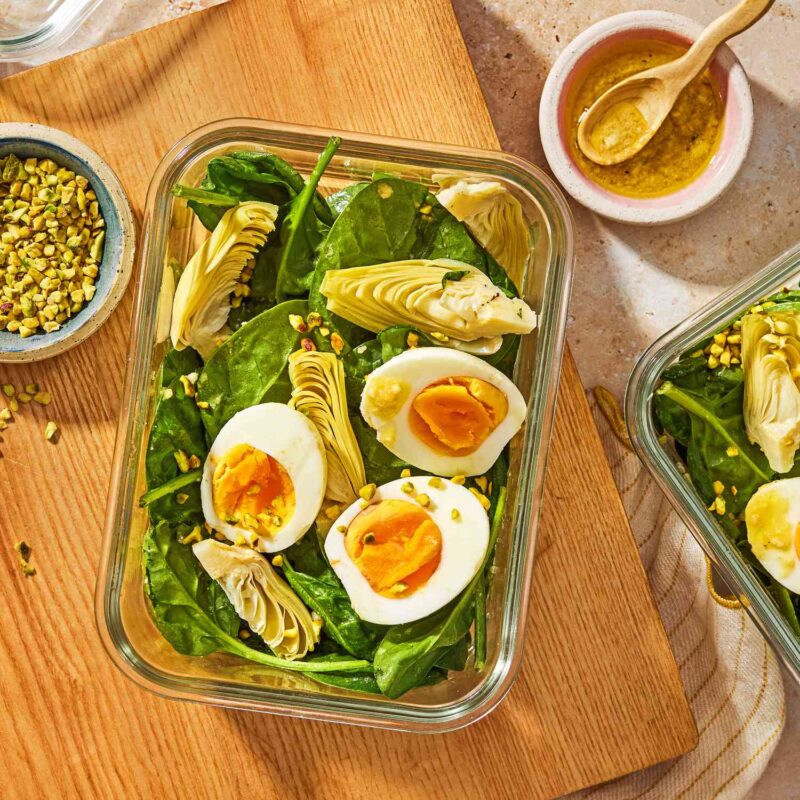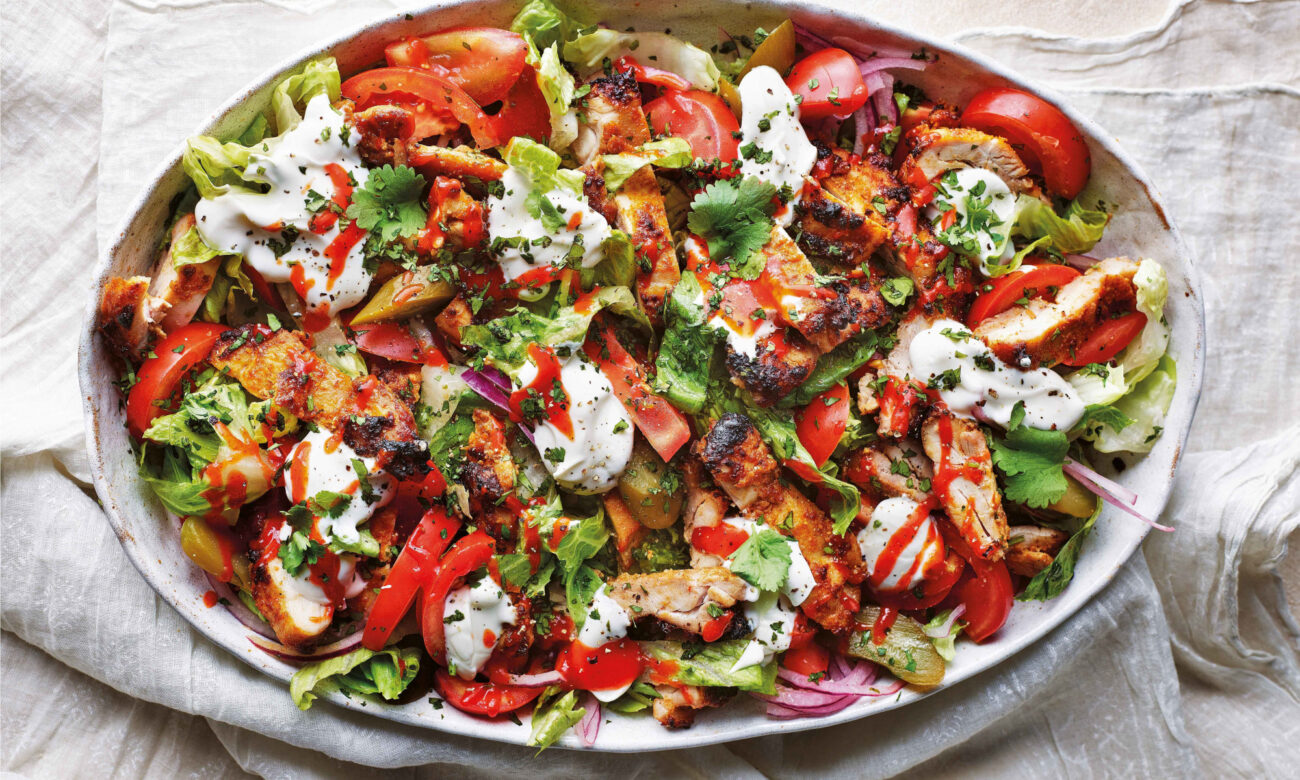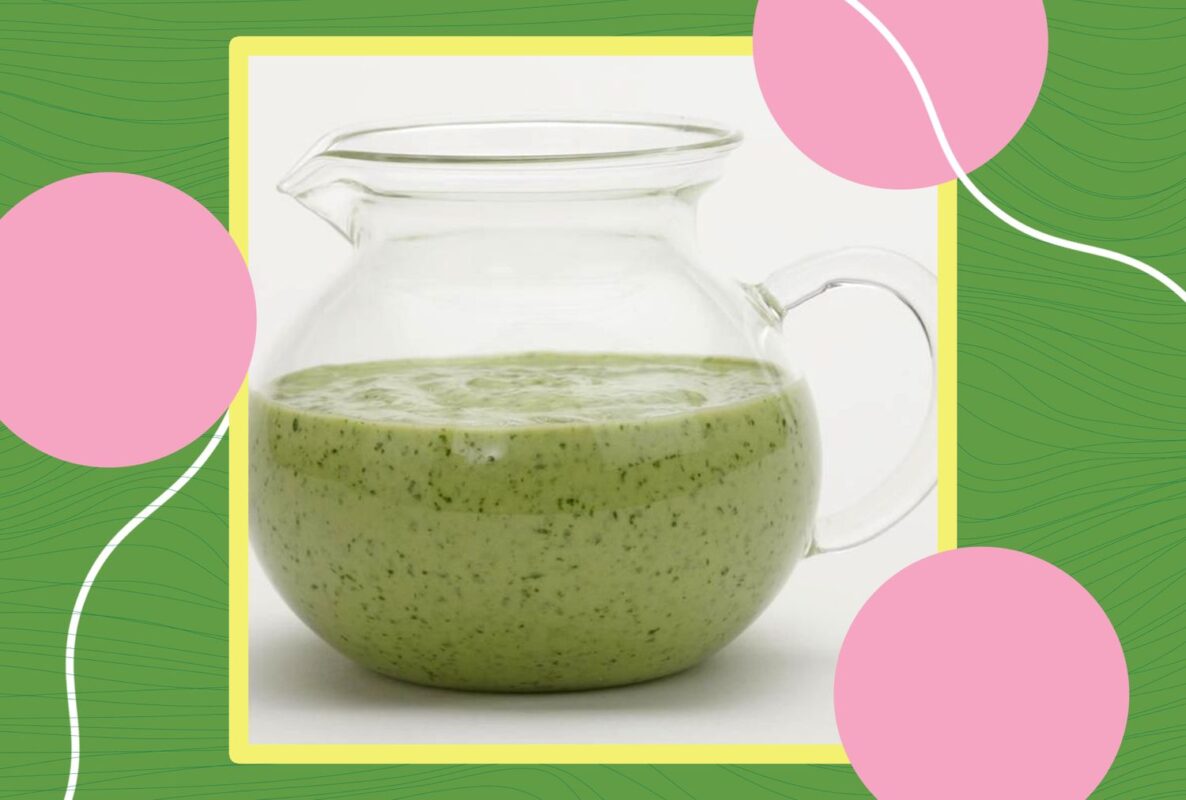Blog
7 Best Anti-Inflammatory Ingredients to Add to Your Salad

- Chronic inflammation may lead to illnesses, but anti-inflammatory foods can help combat it.
- Salads are an easy and delicious way to load up on antioxidants and inflammation-fighting foods.
- Ingredients like berries, olive oil, walnuts, and black beans offer powerful anti-inflammatory perks.
Whenever we hear the word “inflammation,” we automatically think of it as bad. Yet, not all inflammation is a negative thing. Acute inflammation—your body’s reaction to getting hurt or sick—helps you heal because your immune cells are called on to fight germs and repair tissues. However, chronic inflammation across your whole body can lead to disease.
Factors like high stress levels, smoking, limited movement, exposure to certain environmental elements, and the types of foods you regularly eat can all influence chronic inflammation in your body. Over time, all of that inflammation may pave the way for diseases like diabetes, fatty liver disease, heart disease and others.
But it’s not all bad news. There are many things that can help counteract those factors, such as a nutritious diet, managing stress and having an active lifestyle. Additionally, plenty of foods can give you a good boost of antioxidants to combat that inflammation.
To tame your inflammation, try a variety of green leafy salads—they’re a great way to include many different antioxidant-rich foods in your day. And there’s so much variety! Here are seven foods to add to your salad to give you a great anti-inflammatory boost.
1. Pomegranate Seeds
Ancient Mesopotamians grew pomegranates and recognized them for their health benefits thousands of years ago. The seeds, which are actually called arils, are great for tossing into a salad. These arils are packed with phenolic compounds and flavonoids—bioactive compounds known to have antioxidant and anti-inflammatory effects in the body.
Studies suggest that regularly eating pomegranates can benefit your health and possibly protect against certain diseases, like diabetes, cardiovascular disease and even some types of cancer, although more research is needed. Pomegranates contain anthocyanins, which give the fruit a beautiful red color and reduce inflammation in the body. As an added bonus, its arils are made of 85% water, making them a great fruit to help you stay hydrated. Try our Pomegranate and Cucumber Salad for a simple but delicious side.
2. Olive Oil
Olive oil is one of the stars of the much-touted Mediterranean diet, and for good reason. Due to its amazing nutritional profile, olive oil has been studied for a long time. Scientists have found many different anti-inflammatory compounds in olive oil, including oleocanthal. Many studies have pointed to oleocanthal and other phenolic compounds as protective against inflammation.
Instead of store-bought salad dressing, give yourself an anti-inflammatory boost by pouring a tablespoon of olive oil, along with balsamic vinegar, on top of your salad. Together, they make a tasty dressing free from ultra-processed ingredients and full of anti-inflammatory compounds. Or, make one of our 22 Olive-Oil Based Salad Dressing Recipes.
3. Fatty Fish
It’s no surprise that fish is good for you. If you’re looking to reduce inflammation, look no further than a good fatty fish like tuna, mackerel or salmon. Oily fish are rich in omega-3 fatty acids, a type of unsaturated fat that can help lower oxidative stress in the body—one of the main contributors to chronic inflammation.
Research shows that consuming fatty fish may help reduce inflammation and lower the risk for cardiometabolic disease.
4. Black Beans
Black beans are a great way to add fiber and an anti-inflammatory boost to your salad. If you’re a vegetarian, black beans are also a great source of plant-based protein. They’re full of polyphenols, compounds that act as antioxidants in the body. Studies show that including foods rich in dietary phenols, such as black beans, is linked to lower levels of inflammation and oxidative stress.
Black beans are so easy to add to a salad, and the options are endless. Get some anti-inflammatory benefits with our tangy Southwestern Salad with Black Beans. Or, if you’re looking for a lunch that really packs in the veggies, this Quinoa-Black Bean Salad is the perfect option.
5. Walnuts
You might already know that nuts are good for you. They make a fantastic addition to salads for many reasons. They’re naturally shelf-stable, plus they’re full of protein, fiber, vitamins and minerals. Walnuts, specifically, act as prebiotics, feeding your gut microbes and, therefore, contribute to lower inflammation in the body.
Walnuts may help reduce brain inflammation and protect against diseases like Alzheimer’s. Even more so, walnuts are a great source of alpha‐linolenic acid (ALA), a type of omega-3. What better way to reap these benefits than with this Pear, Gorgonzola and Walnut Salad or Walnut Pesto Pasta Salad.
6. Cabbage
Tossing together a combo of leafy greens to make a salad will boost your nutrition, but adding in some red or green cabbage provides even more anti-inflammatory benefits. Cabbage is rich in carotenoids that help scavenge and destroy free radicals in the body. Free radicals are compounds that increase inflammation in the body. The more carotenoid-rich foods you eat, the fewer free radicals you’ll have. One of the great things about cabbage is that it stays fresh in your fridge for a long time.
7. Berries
Berries are not only delicious but also an anti-inflammatory all-star. Blueberries may reduce inflammation thanks to their many phytochemicals, primarily anthocyanins, according to some research. Laboratory studies suggest that eating blackberries may help reduce oxidative stress. Raspberries have a huge phenolic compound family that may help decrease inflammation and help prevent chronic disease, but additional research is needed.
Some bright and flavorful ways to enjoy berries are a Spinach Salad with Quinoa, Chicken & Fresh Berries or a Strawberry Fruit Salad.
Top-Rated Anti-Inflammatory Salad Recipes to Try
Our Expert Take
While not all inflammation damages your body, chronic inflammation may lead to chronic disease. However, getting enough sleep, doing physical activity daily and adding anti-inflammatory foods to your diet can help you reduce inflammation and feel your best. A salad is a great way to do that. The options are endless!












